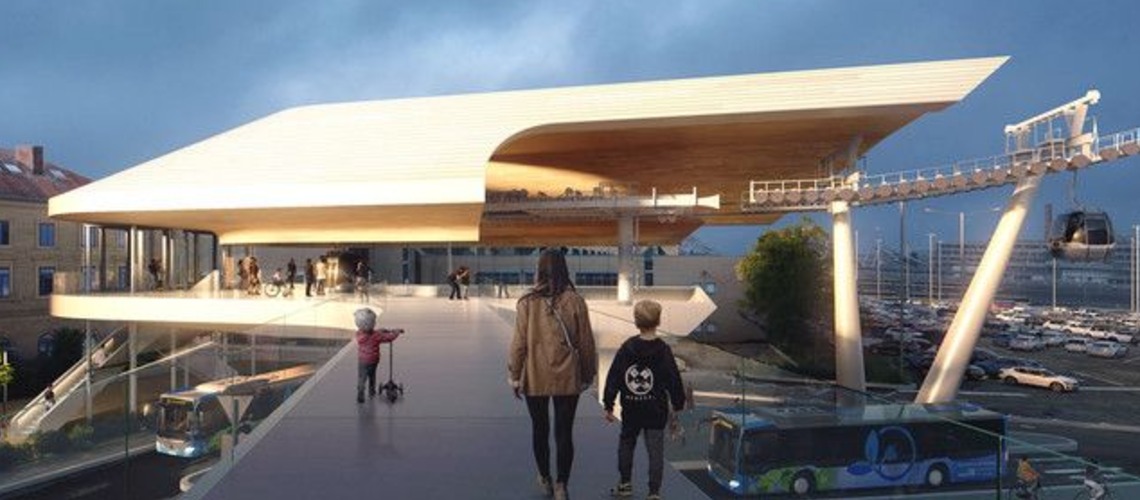Letter Of Intent Signed For Planned Urban Cable Car For Heilbronn

Transport Minister Winfried Hermann and Mayor Harry Mergel have signed a letter of intent to build an urban cable car in the city.
With the so-called "Letter of Intent," the state and municipality jointly reaffirm their determination not only to plan, but also to implement the project swiftly and realistically. Minister Hermann explains: "Cable cars in the city are an innovative means of transport and fit perfectly into modern public transport concepts. For example, they connect the city center with outlying districts in a space-saving manner and help overcome bottlenecks on the ground. So far, no municipality in the state has progressed beyond the idea and initial feasibility studies. I am very confident that this can now succeed in Heilbronn." He praised the city's courage: "The city of Heilbronn shows decisiveness and determination. We need innovative municipalities that approach traffic problems unconventionally and dare to explore new solutions. The cable car is a good fit for the new AI campus."
Four million euros in funding
As a flagship project, the state of Baden-Württemberg is initially covering half of the planning costs with pre-financing of four million euros. Hermann emphasizes: "The state supports urban cable cars as an additional public transport option and sees Heilbronn as one of the first cities nationwide to benefit from this mode of transport. By using the second level above road traffic, we will avoid traffic jams and create faster connections."
For Mayor Harry Mergel, the urban cable car is "a great opportunity to further develop Heilbronn as a city of the future and to decisively address the challenges in the area of mobility. With the Ipai Campus, a new district will be created in the coming years to the north of the city center, which will not only be connected to urban transport hubs via the modern cable car, but will also be integrated into the existing public transport system. An urban cable car also contributes to our sustainability strategy, which we are once again underscoring with our application for the European Green Capital Award."
Urban cable cars are energy-efficient, quiet, accessible, and quick to build. They require little space and are cost-effective to build and operate. "With this technology, the city can create a convenient, reliable, and environmentally friendly connection between the campus and existing rail and bus networks," Hermann continued.
Baden-Württemberg already has seven funicular railways in urban areas, for example in Stuttgart and Karlsruhe. No other federal state has more. However, cable cars are currently only in operation in urban areas nationwide in Koblenz and Berlin, supplemented by the temporary BUGA cable car in Mannheim. In Europe, new urban cable car systems have already been built in Brest and Toulouse, among other places, and a future one will be built in Paris. The planned Heilbronn railway would put Baden-Württemberg on the list of these modern transport systems. Since 2015, the State Municipal Transport Financing Act has been funding the construction of such systems. In Heilbronn, implementation is being sought as part of the federal government's GVFG program. The Ministry of Transport supports interested municipalities with guidelines and handouts. Minister Hermann and Mayor Mergel are convinced that the signing of the letter of intent marks the start of a boost in innovation for local transport in Heilbronn.














